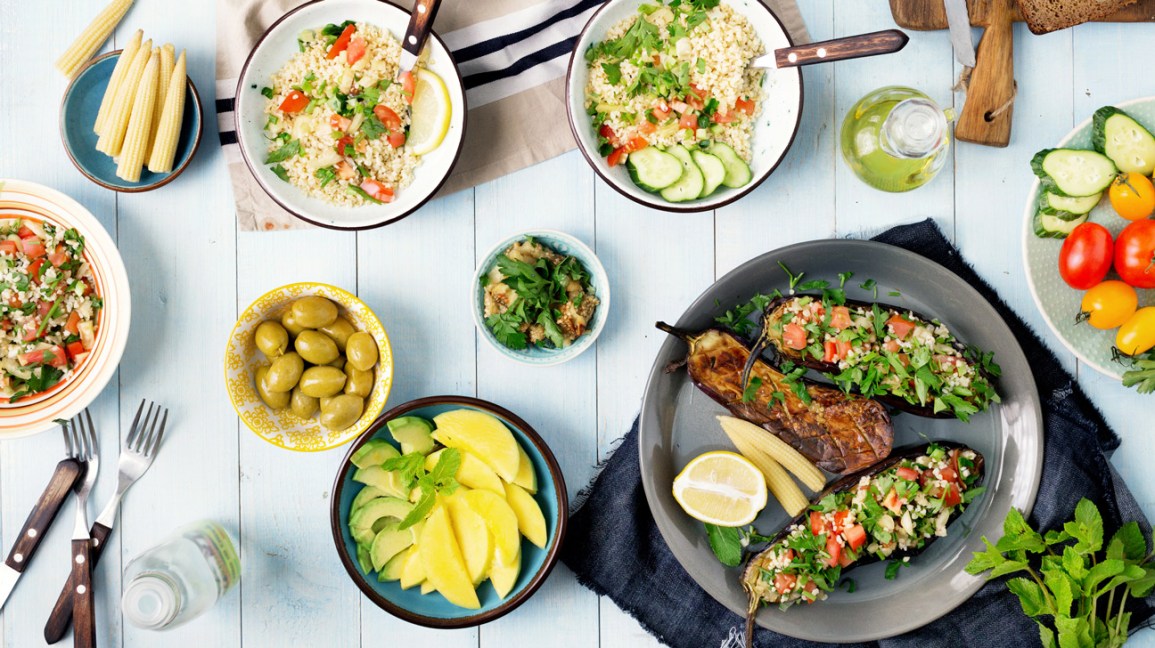
The benefits of fibre are numerous. The average American consumes just half of their daily recommended intake. Eating a variety of foods high in fibre is key to improving your overall health. Fruits, vegetables, whole grains, and nuts are some of the most common sources of fibre. A simple way to boost your health is to eat foods high in fibre. Fibre has more benefits than improved digestion.
Fibre can also help prevent heart disease. Research shows that a diet rich in fibre lowers the chance of developing heart disease up to 50%. It lowers bad cholesterol. It can also control blood sugar levels. It has been shown to help reduce the risk of colon cancer, diabetes, and certain cancers. Studies have shown that fibre intake may be an effective way to prevent colon cancer. By eating more fibre, you'll be able to avoid colon cancer, and will be more likely to lose weight.

In addition to lowering the risk of colon cancer and other chronic diseases, fibre helps maintain the proper functioning of the digestive system. The Wereldkanker Onderzoek Fund estimates that a person could reduce their risk of developing colon cancer by increasing their fiber intake. Soluble fiber is able to absorb cholesterol in food and then eliminate it from the body through the feces. It helps improve blood vessel health. It lowers your risk of heart attack and stroke.
Children who eat a diet high in fibre may be more likely to improve their health, and they may experience less chronic diseases. The benefits of dietary fibre are numerous, although there is still much to be discovered. It can be beneficial to the digestive system as well as organs. Enteral formulas containing fibre should be prescribed for children who have a high nutritional need. A fiber supplement may be beneficial if the child doesn't get enough fiber in their diet.
Fibre is an important part of weight control. Fibre, when eaten regularly, can help people feel fuller for longer and lower their calorie intake. Because it has a low-calorie content, it is often recommended to include more fibre in your diet. Denmark has a traditional diet rich in fibre. Its obesity rate is half as high as that in Canada. This is because of a diet that emphasizes whole grain, legumes, fruits, and vegetables.

According to the study, people are very knowledgeable about fibre. The average score is 3.54 (+-0.5) out of five. The probability of learning about fibre is higher for students at university. According to the survey, fibre has many other benefits. These include a lower risk of developing heart disease, cancer, or other digestive problems. Public knowledge is also well-established about the health benefits of fiber.
FAQ
What Is The Best Way To Lose Weight?
Losing weight is easier said than done. Many people quit because they don’t know where to start.
There are simple steps you can take in order to lose those extra pounds.
First, you must ensure you eat fewer calories than you burn. If you eat more calories that you burn, you'll gain weight.
To burn all those calories, you should also start exercising. You have the option of doing jogging or walking or cycling, as well as dancing.
Third, you need to stop drinking alcohol and smoking cigarettes. These habits can cause you to consume more calories that you would otherwise.
Fourth, you need to cut back on fatty foods and junk food. These can be replaced with healthier options like fruits, vegetables and whole grains.
Fifth, it is important to make lifestyle changes and develop new habits. Perhaps you need to get up in the morning to exercise before heading to work.
Sixth, you must be disciplined and follow your diet plan.
For those extra calories, you could join a class or go to a gym.
You will quickly notice the difference by following these simple tips.
What is your favorite workout order?
It all depends on your goals. You should start with heavy weights if your goal is to build muscle mass. Next, you can move onto cardio. You can then go to strength training if your goal is to lose weight.
Cardio is a great way to lose fat if you are just looking for a quick workout. Add strength training to your workouts.
Do cardio first if you are looking to increase muscle mass. It stimulates growth hormones that help build muscle mass.
Eat before you go to the gym. This will give your muscles more fuel, so they work harder. This will make you feel better while working out.
How many times a week should I exercise?
It all depends upon how much time you have and what type or exercise you prefer. It's a good idea to do moderate-intensity aerobic exercises 3 - 5 times per week. You shouldn't do too much. You will get the maximum benefits from your workouts if you do not exercise consistently.
Which exercises are best suited for me?
It all depends on your fitness goals. Some people are more focused on endurance activities such as running, cycling and swimming. Others prefer lifting weights, or using resistance bands. There are many types of exercise programs today. Select the one that best suits your needs.
What is butter good for?
Butter is one of many good sources of saturated fats. This type is beneficial for healthy skin and hair as well as stronger bones.
Vitamin K, found in butter is an antioxidant that prevents bleeding from cuts. Vitamin K works with vitamin A to prevent bleeding.
Butter is also rich with minerals, such as calcium and phosphorous. These elements help to build stronger bones and teeth.
However, butter has some drawbacks. Butter contains high amounts of cholesterol. A few studies have shown that too much cholesterol can increase the risk of developing coronary disease.
Butter also contains high amounts of saturated fat, which contributes to obesity and increases cholesterol.
However, if you must have butter, try spreading it on bread rather than dipping it into soup or salad. Bread absorbs less oil than pasta and potatoes.
Statistics
- Are You One of the 20% of Guys (mh.co.za)
- Get free shipping and 25% off today. (healthline.com)
- By John Thompson Take a whopping 38% off a set of PowerBlock Pros. (menshealth.com)
- 10 pounds in a month is likely during a lean bulking phase, especially for beginners. (muscleandstrength.com)
- Candidates and applicants must pass all four tests at 70% (minimum level) to graduate from Basic Deputy U.S. Marshal (BDUSM) Training. (usmarshals.gov)
External Links
How To
What should my diet look like before I start a workout?
For weight loss, you should eat fewer calories per day than you burn during exercise. You should also consume all nutrients.
This includes protein as well carbohydrates, fats, and vitamins.
You can do this by eating smaller meals throughout your day instead of three large ones.
You may not be as effective if there is too much hunger during your workouts.
Consider drinking water rather than sugary energy drinks. This will keep you hydrated, and your energy levels high.
Be sure to eat enough fluids. Your electrolytes could be diluted if you drink excessive water.
Electrolytes are essential for the body's proper functioning.
If you don’t have any access to water, sports drinks might be a good option. They are rich in sodium, potassium, calcium and magnesium as well as other minerals.
These help replenish electrolytes lost through sweating. They won't be able to replace the electrolytes you have lost through sweating.
If you're worried about losing too much salt during exercise, you could take a multivitamin pill.
These contain extra vitamin B6 which helps regulate the amount of sodium in your body.
Supplements shouldn't be used if you don’t know how much salt is in food and beverages.
They are not regulated by Food and Drug Administration (FDA).
Sports drinks, for example, can have higher sodium levels than others.
Some sports drinks could even contain artificial sweeteners. These ingredients could cause digestive problems.
You could use sea salt if you are concerned about taking too much salt.
It contains fewer chemicals than table salt.
Sea salt is also low in iodine, another mineral needed for healthy thyroid function.